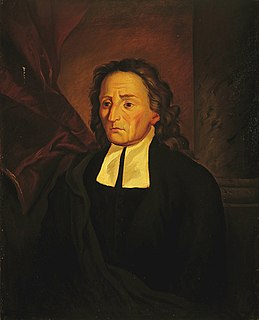A Quote by Fritz Maytag
Beer does not make itself properly by itself. It takes an element of mystery and of things that no one can understand.
Related Quotes
But though every created thing is, in this sense, a mystery, the word mystery cannot be applied to moral truth, any more than obscurity can be applied to light. ... Mystery is the antagonist of truth. It is a fog of human invention, that obscures truth, and represents it in distortion. Truth never envelops itself in mystery, and the mystery in which it is at any time enveloped is the work of its antagonist, and never of itself.
It is the duty of the human understanding to understand that there are things which it cannot understand, and what those things are. Human understanding has vulgarly occupied itself with nothing but understanding, but if it would only take the trouble to understand itself at the same time it would simply have to posit the paradox.
To despair over one's sins indicates that sin has become or wants to be internally consistent. It wants nothing to do with the good, does not want to be so weak as to listen occasionally to other talk. No, it insists on listening only to itself, on having dealings only with itself; it closes itself up within itself, indeed, locks itself inside one more inclosure, and protects itself against every attack or pursuit by the good by despairing over sin.
The first track is the end of a string. At the far end, a being is moving; a mystery, dropping a hint about itself every so many feet, telling you more about itself until you can almost see it, even before you come to it. The mystery reveals itself slowly, track by track, giving its genealogy early to coax you in. Further on, it will tell you the intimate details of its life and work, until you know the maker of the track like a lifelong friend.




























